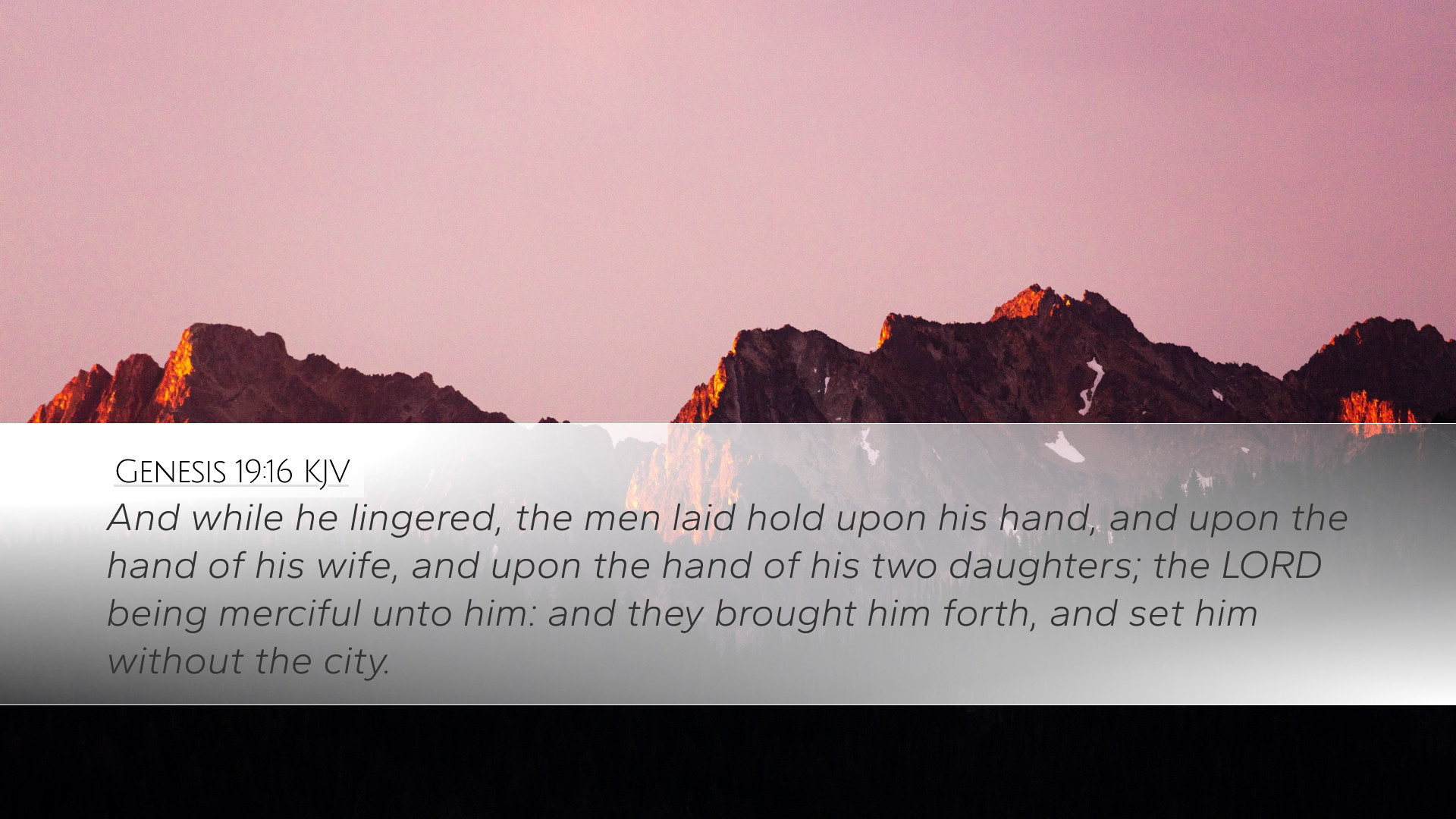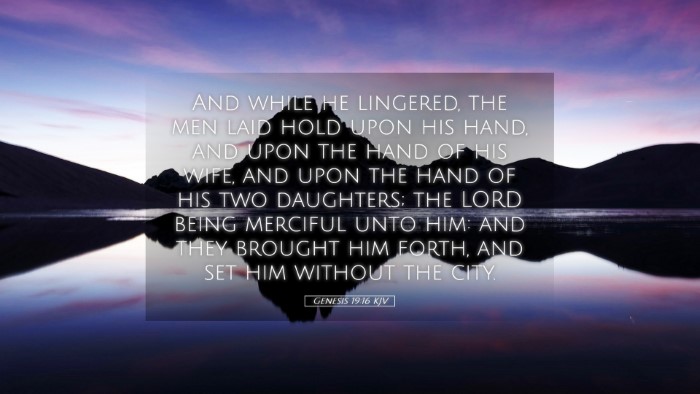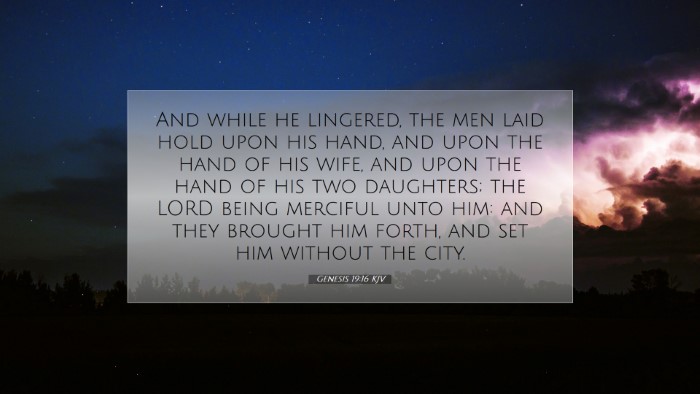Commentary on Genesis 19:16
Genesis 19:16 states: "And while he lingered, the men laid hold upon his hand, and upon the hand of his wife, and upon the hand of his two daughters; the Lord being merciful unto him: and they brought him forth, and set him without the city."
Introduction
This verse is pivotal in the narrative of the destruction of Sodom and Gomorrah. It highlights the tension between human hesitation and divine urgency. The merciful intervention of God in the face of impending judgment is a central theme, showing both the grace of God and the serious consequences of sin.
Exegesis and Analysis
The Context of Genesis 19
The backdrop of this verse is the moral and spiritual decay of Sodom and Gomorrah, which culminates in God’s decision to judge the cities. Lot, who represents the faithful remnant, finds himself in a precarious situation as he attempts to negotiate with the angels – who serve as God’s messengers and doers of His will.
Lot’s Hesitation
Lot's lingering is significant for several reasons:
- Doubt and Fear: Lot's hesitancy illustrates a common human reaction when faced with severe divine instruction. His natural inclination to delay contrasts with the urgency of God's command.
- Attachment to the World: Lot's reluctance may reflect his attachment to Sodom, recognizing it as a place of comfort despite its sinfulness.
- Divine Patience: The phrase “while he lingered” demonstrates God's patience and mercy. This indicates that God is willing to extend grace even in moments of our weakness.
Divine Intervention
“The men laid hold upon his hand” reveals a profound truth about God’s active role in our rescue. God is depicted as assertively intervening in Lot’s life, embodying mercy:
- Mercy and Grace: The Lord being merciful represents God’s readiness to save those who have faith, even if they struggle with hesitance.
- Physical Rescue: The act of the angels physically taking Lot and his family by the hand suggests the urgency of salvation and the seriousness of the judgment upon Sodom.
Theological Implications
This moment encapsulates several theological themes:
- The Nature of God: God's mercy is highlighted through His actions. Despite Lot's shortcomings, God reaches out to save him, which aligns with the overarching narrative of God’s redemptive heart.
- Human Response to God’s Call: Lot's initial response prompts reflection on how often people hesitate to respond to God’s call, seeing this as an invitation to consider our own responsiveness to divine instruction.
- The Community of Faith: The involvement of Lot’s family signifies that the decisions made in faith can have profound effects on loved ones, emphasizing the importance of communal faith amidst individual struggle.
Practical Applications
For pastors, students, and theologians, this verse encourages:
- Embrace of Divine Urgency: Urge the congregation to recognize the urgency of responding to God's call. Just as Lot was called to flee, believers today must be ready to leave behind sin and embrace God’s purpose.
- Invitation to Grace: Utilize Lot's experience to teach about God's grace. Emphasize that even when we linger, God does not abandon us, offering hope for those struggling with compliance in their spiritual journey.
- Community and Accountability: Highlight the importance of community in supporting each other towards obedience, holding each other accountable, much like the angels who assisted Lot and his family.
Conclusion
Genesis 19:16 serves as a profound reminder of God's merciful character in the face of human frailty. It reflects the tensions between human hesitation, divine mercy, and the irrevocable consequences of living in rebellion against God. As we reflect on this passage, we are encouraged to trust in God’s saving grace and respond promptly to His divine leading.


